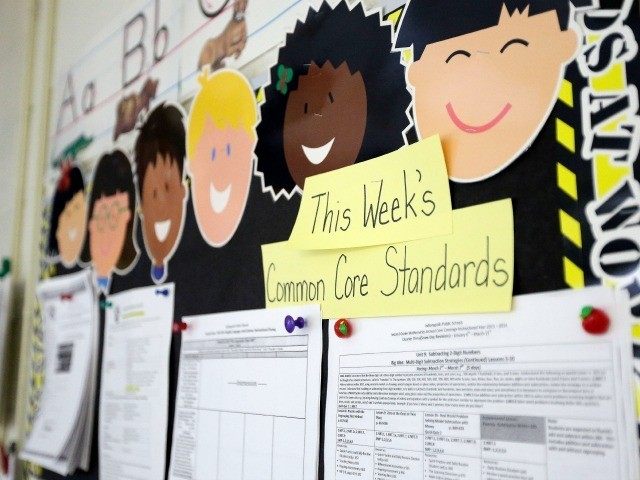Last fall I completed a PhD I had been working on for over eight years. I have read some blogs that discuss graduate studies, but I was reluctant to discuss it much here on the TechIntersect blog. Much of it was too painful. There were many questions in my mind about whether or not I was even up to the task.
As if working on a PhD while teaching full time weren’t difficult enough, there were a number of things that happened that made me question whether it was even worth it and wonder if I was up to the challenge. Simply put, there were some very dark times.
I think much of the problem was just simply going through life sleep-deprived. For weeks on end, I would get up at 2 or 3am to work on my dissertation and then head on in to work to teach a full day of classes. The only way I could force myself to endure it was to reassure myself it was only temporary and would be worth it in the end.
But there was one year a few years back in which I attended funerals of four close relatives – two grandmothers, an uncle and a brother-in-law all within the space of a few months. It felt like I was getting kicked in the teeth repeatedly. I was so very tired all of the time, only to have this added stress. We also lost a beloved family pet, and things at work are always a challenge. There never seems to be enough money, enough students, or enough administrative support for what we’re trying to accomplish with a new degree program in digital media technology.
What I am trying to say is there was always an excuse to give up. Any one of these things should have been enough to cause me to throw in the towel. But my life has always been full of challenges. For example, no matter how bad things got I could always reflect on the fact that I was no longer in a combat zone – no one was shooting at me. Sometimes it felt like people were taking shots, but no physical lead was flying like it did in Desert Storm. That was a tough time to get through, and in some ways it was easier than the work on a PhD.
In Desert Storm, we always knew what we were supposed to be doing. Even when the Silkworm anti-ship missile was bearing down on us, we knew what to do – brace for shock. Scary stuff, but we knew how to respond. With a PhD, so much of it, I had to figure things out on my own. There was no proven pathway, no well worn path to success. I had a great advisor, but she gave me a lot of freedom to explore (and to fail). And when the failures happened (there were several) it was up to me to get myself through it.
So one of the things I do when I fail is retreat and recover. I just needed some space and some time. There were times when I missed a goal or deadline that I might not do anything about it for many weeks. Maybe this is a bad habit. Maybe I should have gotten right back on the horse again after getting bucked off. Maybe it otherwise wouldn’t have taken me so long to finish. But it is my way. In the back of my mind, I never allowed the thought that I might permanently give up take root.
Another thing I do is to take responsibility for the things that I have control over, and the rest I turn over to God. If I can’t do anything about it, there is no point in worrying about it. This attitude has helped me immensely. And to cement the attitude in, I meditate. I learned to use a Rosary for prayer and meditation. You may find it useful as well, or maybe some other form of meditation will be helpful. But you should look into it if you’re over-stressed. It helps.
So last December I finally graduated and thought that all of this tough stuff would be forever behind me. Yeah, right. Life for me, it seems, just about when you think the chaos is calming, a new piece of drama pops up. It is test after test. How much can you handle, dude? Quite a lot, as it turns out.
But I have some people close to me who have set wonderful examples for me when it comes to dealing with adversity. For example, I had a close relative whose parents divorced back when this just wasn’t ever done. Growing up, he always felt like an outcast. Then, as a young man, he deployed to some of the nastiest jungle fighting in the WWII Pacific. He came home, got married, had some kids, and within 18 or so months time lost his brother, his daughter and his wife. Talk about hardship.
I had another relative whose mother didn’t want him and gave him up for adoption. Later, he wound up in a situation where he had to get married because an unexpected baby was on the way. They wound up having six kids and stayed together for over 50 years.
Another relative of mine lost his wife when she was 23 years old, leaving him with two pre-school kids to raise. He remarried, had three more kids and they’ve been together for over 40 years. Now his second wife has cancer and she’s getting treatments. They seem to be handling things well, and through it all you can easily see they are still deeply in love.
I think most people have these sort of stories to tell, although I think different people handle things differently. Not everyone deals with adversity well. So I’m very lucky. Lucky to have these people who have gone through such difficulties, and some how, some way they kept on keeping on. They have been an inspiration to me. I can only hope that I can pass what I know along to others around me who also face difficulties. It is hard to talk about, but I don’t know of any other way to be an example for others who are also struggling.


